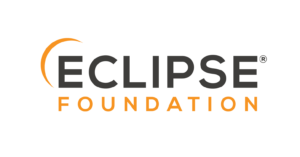Maximizing AI in the Wine Industry on a Budget

Harnessing Artificial Intelligence in the Drinks Industry
Artificial Intelligence (AI) is transforming various industries, and the drinks sector is no exception. A recent discussion at the ProWein Business Forum in Düsseldorf highlighted how drinks companies can leverage AI effectively, even with limited budgets.
The Panel Discussion
The talk, led by db editor-in-chief Patrick Schmitt MW, featured important figures like Pam Dillon and Andrew Sussman from Preferabli, a company specializing in AI-driven drink recommendations, and Ron Scott from Enolytics, which uses AI to analyze market data. Schmitt emphasized the need for educational forums to keep the industry relevant, particularly in terms of practical tools like AI, which can enhance business operations.
Financial Constraints in the Wine Industry
Schmitt pointed out that many companies are primarily focused on production and sales, often neglecting technology investments. Given that the wine industry comprises many small-scale operations, there’s a significant opportunity for external expertise in AI to enhance efficiency. Instead of trying to master AI internally, companies could benefit from collaborating with specialized firms that have a deep understanding of AI technology.
AI Applications in the Drinks Sector
Consumer-Focused Solutions
One notable example of AI in action is the partnership between Preferabli and the UK supermarket Marks & Spencer. They created an AI tool that helps customers find wine based on their preferences through a simple questionnaire. This tool sorts through vast amounts of information, making it easier for consumers to discover new drinks tailored to their tastes.
Sussman also highlighted the flexibility of Preferabli’s software, which allows users to request responses in various tones, such as a pirate’s voice. This feature is intended to align the software’s communication style with the client’s brand identity.
Producer-Centric Insights
On the other side, Enolytics focuses on providing producers with valuable market insights. Scott explained that their software helps producers understand their customer demographics—who is buying their wine and where. This information allows wineries to refine their marketing strategies, ultimately resulting in a more tailored approach when reaching out to potential customers.
Scott noted that generative AI can significantly enhance marketing tactics, helping companies target specific customer bases and create customized campaigns. This might include using AI-generated suggestions to keep customers engaged, such as promoting membership in a wine club based on individual buying habits.
Cost Efficiency and ROI
Despite the initial perception that AI might be costly, both Preferabli and Enolytics emphasize affordability. Dillon mentioned that users can start using Preferabli’s services for as little as €100 a month. This price point allows smaller wineries to access sophisticated AI tools that would otherwise be out of reach. Sussman added that the return on investment for clients can be substantial, often yielding hundreds of times the original investment.
For example, a U.S.-based restaurant chain using an AI wine recommendation system saved a significant amount on wine samples, illustrating AI’s potential for reducing expenses while improving profitability.
Supporting Expertise, Not Replacing It
While AI is a powerful tool for streamlining operations and enhancing consumer experiences, Dillon stressed the importance of human expertise. Many companies in the wine sector, including Preferabli, continue to rely on knowledgeable professionals like Masters of Wine and Master Sommeliers for their insights, particularly in tasting notes.
Dillon emphasized that the goal is not to replace skilled professionals but to amplify their contributions. Well-designed AI algorithms require high-quality data to function effectively, highlighting the need for collaboration between technology and expert human input.
Through innovative applications and collaborative efforts, AI has the potential to reshape the drinks industry, making it more efficient and customer-focused. Whether through enhancing consumer experiences or providing vital market insights to producers, the future of AI in this sector looks promising.






